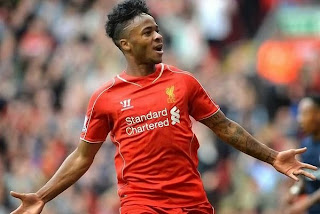Raheem Sterling became the most expensive English player with a £49Million move from Liverpool to Manchester City after several weeks of speculations and unending drama.
Expectedly, alot of criticisms have trailed the move over the exorbitant fee paid by City for the twenty year old who has done very little to merit such huge amount.
Since 2012, Raheem has played a total of of 92 games, scored 18 goals and made 14 assists for Liverpool. Not bad statistics for a player his age but definitely not enough to make him the most expensive English player.
So, why did Manchester city spend such huge ridiculous amount on a player that boast of almost nothing other than potentials?
The answer lies in the home grown player rule enacted before the 2010-11 season.
The rule basically compels EPL teams to have eight ‘home grown’ players out of a squad of 25.
An home-grown player is defined as one who, irrespective of his nationality or age, has been registered with any club affiliated to the Football Association or the Football Association of Wales for a period, continually or not, of three entire seasons or 36months prior to his 21st birthday (or the end of the season during which he turns 21).
The rationale behind this is the English FA’s intention to build a system that promotes the development of English young players with the ultimate aim of improving the country’s national team.
There have been a chorus in England over the influx of too many foreign stars and dearth of home grown talent which has led to the lack of quality or options in the National team.
The scurry to fulfil this provision have informed the signing of some players in the transfer market already as clubs are left with two options – promote from within or sign players.
Manchester city will not settle for the option of promoting players from within because honestly, they do not have players in their academy talented enough to make good input in their obvious bid to win the league.
Furthermore, given the required number – eight out of a squad of 25 (with no extension until January), it becomes imperative for clubs to add proven, quality players that can provide the manager with options and a crucial squad depth needed to be successful in England where large number of games are played.
Proven, talented players who satisfies the homegrown provision are not in abundance and the scarcity will definitely have huge consequences on the price tag placed on available ones.
Whilst Raheem Sterling is considered by the larger majority as another young promising player with huge potentials, his nationality and scarcity of home grown players with similar prospect to his qualifies him as an expensive player and Manchester City just had to foot the bill.
Summarily, Raheem’s signing is out of Manchester city’s desperate bid to satisfy two pressing needs – reinforcing the squad and meeting the provisions of the home-grown player rule. And in Raheem Sterling, they found an answer to both.
Adeshina Peter tweets via the handle – @shina_pitta








